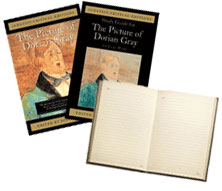
Ignatius Critical Editions give you and your students the tools to dig into classic works. How?
Ignatius Critical Editions Study Guides are constructed to aid the reader of ICE classics achieve a level of critical and literary appreciation befitting the works themselves. They cover the gamut of classroom needs, from summaries to essay questions. Ideally suited for students themselves and as a guide for teachers, the ICE Study Guides serve as a complement to the treasures of critical appreciation already included in ICE titles.
Features
Introductions situate the reader in the work, historically and otherwise.
Summaries give a helpful overview of chapters and sections without attempting to replace reading the text.
Key Moments and Themes and Points to Ponder are addressed to train the students' careful attention to important parts and ideas in the text.
Text-level Questions test the students' knowledge of the narrative.
Higher-level Questions test the students' ability to discern themes and correlations in the work itself, and their ability to critically evaluate these in terms of literary merit and wider significance.
Books by Author
by last name, except for Wm. Shakespeare
Bulk Discounts Available
| Order Amount * | Discount |
|---|---|
| 10–49 | 20% |
| 50–99 | 35% |
| 100–249 | 49% |
| 250–749 | 51% |
| 750+ | 52% |
The Ignatius Critical Editions are available in bulk, perfect for schools, colleges, or homeschooling groups!
Educator Resource Center
Need to Place a Bulk Order?
Schools, book clubs — any orders over 10 can receive special pricing online or by phone. Click here for details.
Brochures & PDFs
Considering using ICE as a teaching tool? Know someone who should? Download the documents below for some information that should help the decision. (All documents are PDFs unless otherwise noted.)
- ICE Brochure (2MB)
Everyday Benefits
What makes each Ignatius Critical Editions title a resource for teachers? Besides the above, here are a few practical, everyday things that will make teaching a fuller and more manageable experience.
Why Traditional Criticism?
Tradition is the extension of Democracy through time; it is the proxy of the dead and the enfranchisement of the unborn.
Tradition may be defined as the extension of the franchise. Tradition means giving votes to the most obscure of all classes, our ancestors. It is the democracy of the dead. Tradition refuses to submit to the small and arrogant oligarchy of those who merely happen to be walking about.
G. K. Chesterton
(read the full quote in our mission statement)
Available Study Guides:
- Adventures of Huckleberry Finn - Study Guide
- The Confessions - Study Guide
- The Consolation of Philosophy - Study Guide
- Dracula - Study Guide
- Frankenstein - Study Guide
- Great Expectations - Study Guide
- Gulliver's Travels - Study Guide
- Hamlet - Study Guide
- Julius Caesar - Study Guide
- King Lear - Study Guide
- Loss and Gain - Study Guide
- Macbeth - Study Guide
- Mansfield Park - Study Guide
- The Merchant of Venice - Study Guide
- Moby Dick - Study Guide
- The Picture of Dorian Gray - Study Guide
- The Red Badge of Courage - Study Guide
- Romeo and Juliet - Study Guide
- The Scarlet Letter - Study Guide
- A Tale of Two Cities - Study Guide
- Uncle Tom's Cabin - Study Guide
- Wuthering Heights - Study Guide